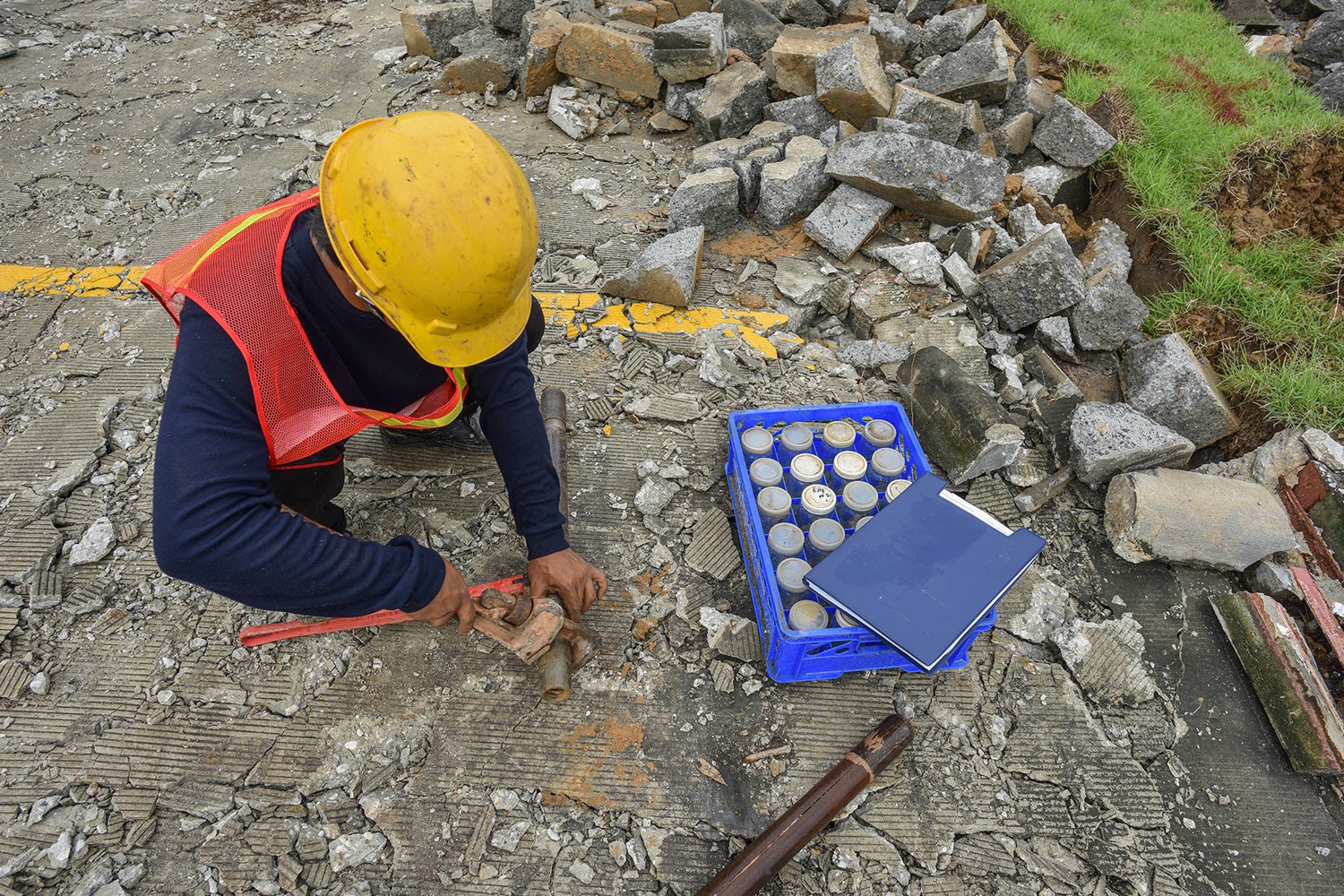Civil Testing and Inspection Technician

The Civil Testing and Inspection Technician Program at Wayne County Community College District (WCCCD) prepares students to perform inspection and testing tasks in constructing infrastructure such as highways, roads, bridges, airports, and railroads. Students will learn to read and interpret civil engineering drawings and specifications for municipal projects, including roadway resurfacing, storm and sanitary systems, and water main improvements. Upon completion, students may have the opportunity to earn a nationally recognized certificate, enhancing their qualifications for work in the civil engineering and construction fields.
What Do Civil Testing and Inspection Technicians Do?
Civil Testing and Inspection Technicians assist civil engineers in planning, designing, and constructing infrastructure projects such as highways, bridges, and utilities. They also inspect and test construction materials, ensuring they meet required safety and durability standards. Technicians also interpret design plans, conduct field testing, and help ensure compliance with regulatory codes and specifications.
Where Do Civil Testing and Inspection Technicians Work?
Technicians typically collaborate with licensed civil engineers, helping to install equipment, systems, and infrastructure. They may also supervise the work of other technicians, assist with the design of new infrastructure projects, or improve existing infrastructure. These roles are essential in construction, transportation, utilities, and municipal infrastructure.
Job Outlook for Civil Testing and Inspection Technicians
Employment of civil engineering technologists and technicians is projected to show little or no change from 2022 to 2032, with an estimated 5,900 job openings each year over the decade, primarily due to retirements and workers transitioning to other careers.
Recommended course sequencing
Semester 1: 12 Credits
- ENG 119 - English I 3 Credit(s)
- CIV 100 - Civil Technology Industry Overview 3 Credit(s)
- CIV 101 - Fundamentals of MicroStation 3 Credit(s)
- MAT 121 - Technical Mathematics I 3 Credit(s)
Semester 2 Total: 13 Credits
- CIV 155 - Concrete Material, Construction, and Testing I 4 Credit(s)
- CIV 160 - Construction Plans, Specifications, & Safety 3 Credit(s)
- CIV 200 - Soils and Foundation Technology 3 Credit(s)
- ENG 134 - Technical Communications 3 Credit(s)
Semester 3 Total: 13 Credits
- CIV 150 - Fundamentals of Surveying 3 Credit(s)
- CIV 210 - Concrete Material, Construction, and Testing II 4 Credit(s)
- CIV 220 - Construction, Inspection and Documentation I 3 Credit(s)
- CIV 240 - Highway Technology 3 Credit(s)
Semester 4 Total: 12 Credits
- PS 101 - American Government 3 Credit(s)
- CIV 225 - Construction, Inspection and Documentation II 3 Credit(s)
- CIV 245 - Site Aggregate Inspection and Testing 3 Credit(s)
- CIV 250 - Plans and Specifications 3 Credit(s)
Semester 5 Total: 13 Credits
- CIV 260 - Density Control 3 Credit(s)
- CIV 270 - Nuclear Density Radiation Training 3 Credit(s)
- Elective: Humanities Elective: 4 Credits
- Elective: Natural Science Elective: 3 Credits
Semester 1 Total: 12 Credits
- ENG 119 - English I 3 Credit(s)
- CIV 100 - Civil Technology Industry Overview 3 Credit(s)
- CIV 101 - Fundamentals of MicroStation 3 Credit(s)
- MAT 121 - Technical Mathematics I 3 Credit(s)
Semester 2 Total: 13 Credits
- CIV 150 - Fundamentals of Surveying 3 Credit(s)
- CIV 155 - Concrete Material, Construction, and Testing I 4 Credit(s)
- CIV 160 - Construction Plans, Specifications, & Safety 3 Credit(s)
- ENG 134 - Technical Communications 3 Credit(s)
Semester 3 Total: 10 Credits
- CIV 200 - Soils and Foundation Technology 3 Credit(s)
- CIV 210 - Concrete Material, Construction, and Testing II 4 Credit(s)
- CIV 220 - Construction, Inspection and Documentation I 3 Credit(s)
It is the policy of WCCCD that no person, on the basis of race, color, religion, national origin, age, sex, height, weight, marital status, disability, or political affiliation or belief, shall be discriminated against, excluded from participation in, denied the benefits of, or otherwise be subjected to discrimination in employment or in any program or activity for which it is responsible or for which it receives financial assistance from the U.S. Department of Education.


